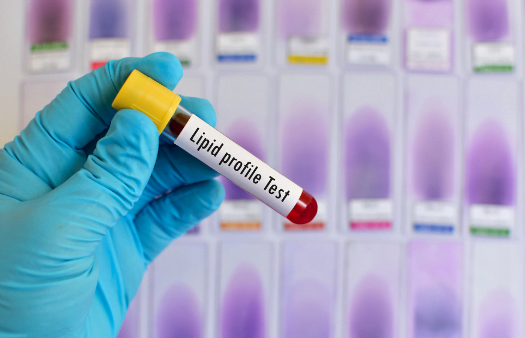Cholesterol Stability Testing in Food and Feed
The need to ensure cholesterol stability in food and feed is critical, especially in sectors such as clinical and healthcare testing. Cholesterol plays a vital role in the human body by maintaining cell membrane integrity, producing steroid hormones, and aiding in the digestion of fats. However, when incorporated into food or feed products, cholesterol can undergo chemical reactions that alter its structure and function. These changes may impact product quality, safety, and regulatory compliance.
Cholesterol stability testing is essential for maintaining consistent product quality and ensuring consumer health and safety. This test assesses the resistance of cholesterol to oxidative stress and other environmental factors that could lead to degradation or alteration in its chemical structure. The primary goal is to determine how well the cholesterol remains stable under various conditions, such as temperature, light exposure, and storage duration.
For food products, cholesterol stability testing helps manufacturers understand how their formulations affect the shelf life of foods containing cholesterol. In feed applications, ensuring cholesterol stability prevents potential health risks for livestock, which can ultimately impact animal welfare and human consumption safety.
The test typically involves exposing samples to controlled environmental conditions designed to simulate real-world scenarios where the product might be exposed to heat, light, or other stressors. Specimens are analyzed periodically over time to monitor changes in cholesterol composition and structure. Advanced analytical techniques like high-performance liquid chromatography (HPLC) and nuclear magnetic resonance spectroscopy (NMR) provide precise measurements of cholesterol breakdown products and structural modifications.
Compliance with international standards such as ISO 14927:2016 ensures that testing methods are consistent across different laboratories, fostering trust in results. Understanding these nuances allows quality managers to make informed decisions about ingredient sourcing and processing techniques aimed at preserving cholesterol integrity throughout the supply chain.
In summary, cholesterol stability testing is a critical component of modern food safety practices. By accurately assessing how external factors influence cholesterol's chemical behavior within food and feed products, manufacturers can enhance product longevity while adhering to strict regulatory guidelines.
Why It Matters
The importance of cholesterol stability testing in the context of clinical and healthcare cannot be overstated. Cholesterol is a key component in many medical treatments aimed at managing cardiovascular diseases, dyslipidemias, and other conditions associated with lipid metabolism disorders.
Regulatory compliance: Ensuring that food products containing cholesterol meet stringent regulatory requirements helps protect public health by minimizing the risk of adverse effects from contaminated or improperly processed ingredients.
Consumer trust: Providing transparent information about the stability and quality of cholesterol in food items fosters consumer confidence, which is essential for building brand loyalty and promoting healthier eating habits.
Economic benefits: Maintaining consistent cholesterol levels reduces waste due to spoilage or improper storage conditions, leading to significant cost savings for producers and retailers alike.
Incorporating robust quality assurance protocols into the production process also enhances operational efficiency by reducing rework and recall incidents. Ultimately, this contributes positively towards achieving long-term business sustainability goals.
Quality and Reliability Assurance
Sample preparation: Proper sample handling is crucial to ensure accurate test results. Samples should be stored under appropriate conditions (temperature control, light avoidance) prior to analysis to prevent premature degradation of cholesterol.
Analytical methods: Utilizing advanced technologies such as HPLC and NMR enables precise measurement of cholesterol breakdown products and structural modifications. This approach provides valuable insights into the stability characteristics of different samples.
Our laboratory adheres strictly to ISO 14927:2016, ensuring that all tests conducted follow standardized procedures. This commitment guarantees consistent and reliable results across multiple batches and lots of products.
We employ experienced technicians equipped with state-of-the-art equipment to perform these analyses. Regular calibration checks ensure instrument accuracy over extended periods, further enhancing the reliability of our findings.
Customer Impact and Satisfaction
Informed decision-making: By providing clear data on cholesterol stability, we empower customers to make well-informed choices regarding their product development strategies. This knowledge enables them to optimize formulations for extended shelf life without compromising safety or efficacy.
Enhanced reputation: Demonstrating a strong commitment to quality through rigorous testing practices helps establish our clients' reputations as leaders in the industry, fostering stronger relationships with both partners and end consumers.
Our focus on excellence extends beyond mere compliance; we strive continually to exceed expectations by offering innovative solutions tailored specifically to each client's unique needs. Whether you're developing new formulations or seeking validation of existing processes, our expertise ensures that your products remain safe, effective, and appealing to the market.





